12 Nightmare Neighbors That Made People Sleep With One Eye Open

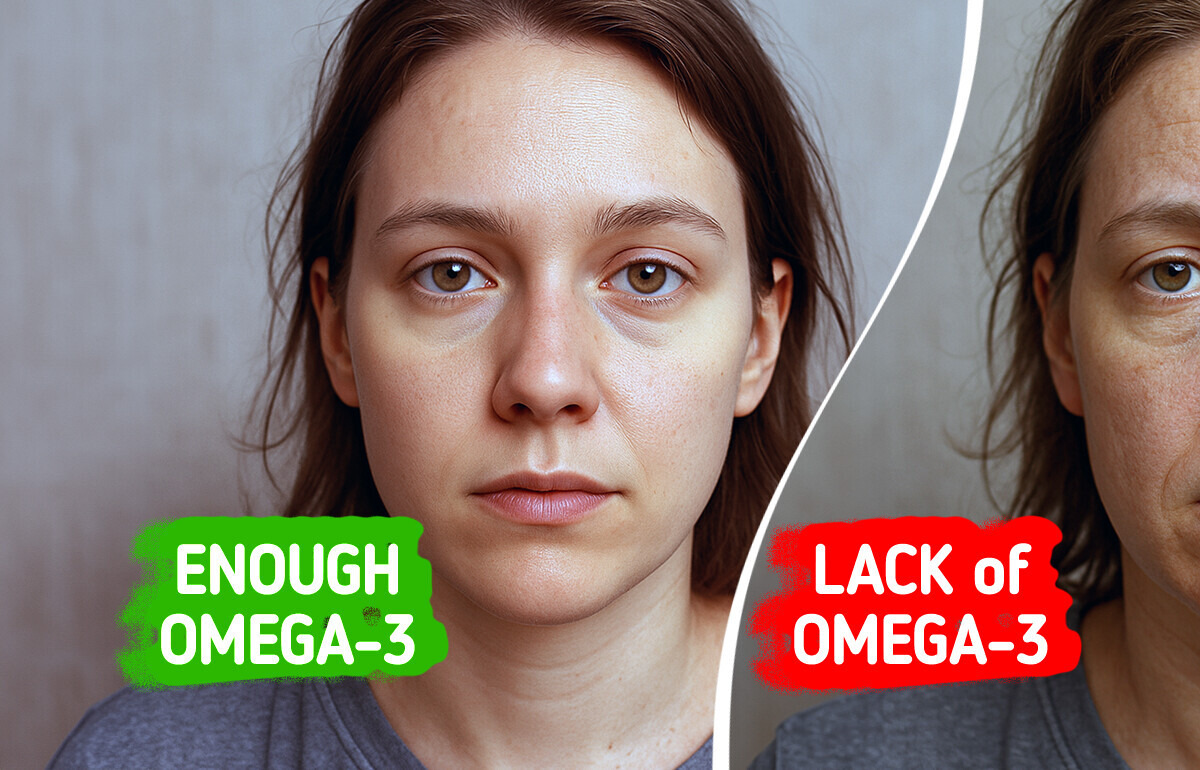
Let’s be real: aging is not the enemy — it’s a privilege! But wouldn’t it be great to glide through the years feeling strong, radiant, and full of energy? The truth is, sometimes it’s not about the candles on the cake — it’s about what’s happening inside your body.
Many women start noticing these little changes too early: tired skin, wrinkles, stiff joints, brain fog, or a general “blah” feeling. Sometimes, these aren’t just “normal signs of getting older” — they can be red flags that your body is missing some key nutrients it needs to thrive.
The good news? You may not need magic potions or extreme diets. Sometimes, just giving your body the right vitamins and minerals can help you feel like the very best version of yourself — vibrant, glowing, and ready for everything life throws your way.
In this article, we’ll explore 10 nutrient deficiencies that can sneak up on you and quietly speed up the aging process.
CONTENT IS PROVIDED FOR INFORMATIONAL PURPOSES ONLY AND IS NOT INTENDED AS A SUBSTITUTE FOR MEDICAL ADVICE.
SEEK GUIDANCE FROM YOUR DOCTOR REGARDING YOUR HEALTH AND MEDICAL CONDITIONS.
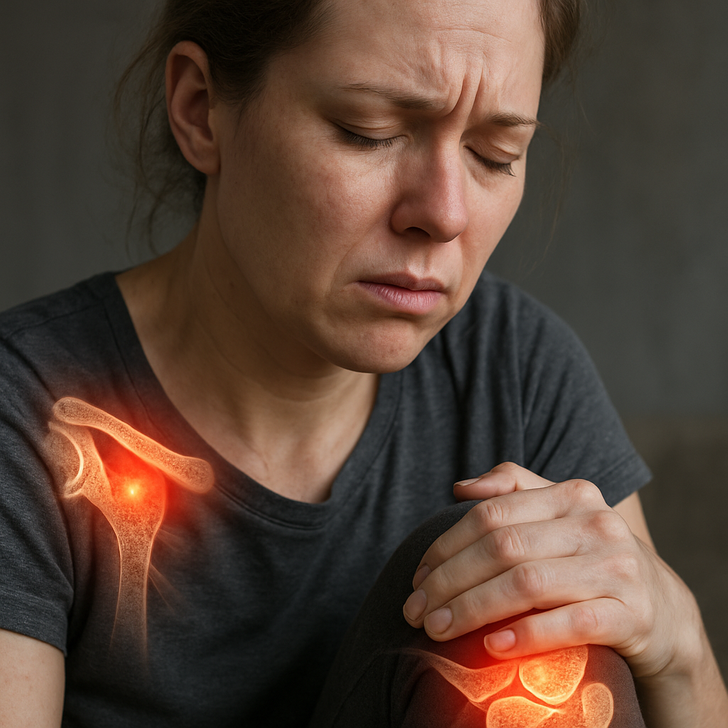
Ages → bones, muscles, skin & brain
Low vitamin D weakens bones and increases fracture risk, makes muscles ache and feel flimsy, and can speed up skin aging and cognitive decline. Women with low vitamin D often complain of joint pain and slower healing.
A positive note? Getting enough sunshine, fish, or a simple supplement can help you stay strong and sharp.
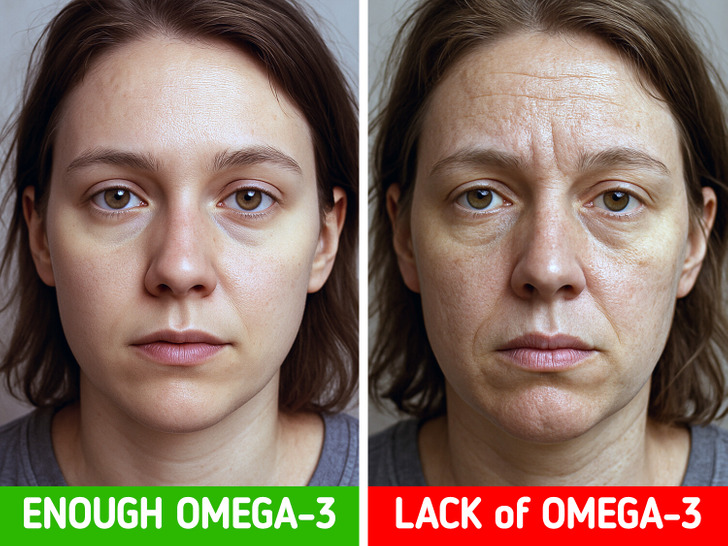
Omega‑3s are brain-food, heart-helpers, and skin moisturizers. A low intake can contribute to brain fog, mood dips, heart stiffness, and rough or dry skin. When your skin is not moisturized enough, the wrinkles and fine lines may appear more visible.
Oily fish, flaxseed, or a simple fish-oil supplement can help keep your heart, mind, and glow youthful.
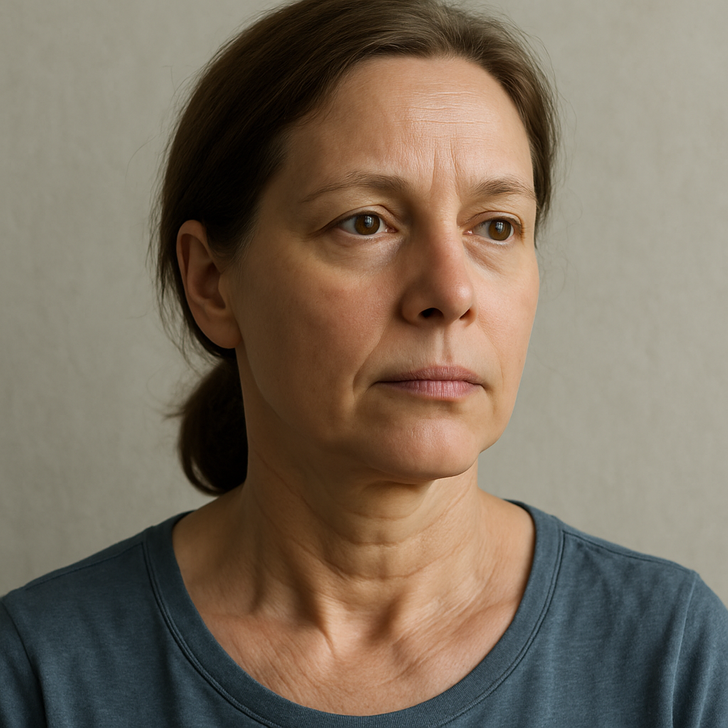
A vitamin C deficiency can contribute to increased wrinkles and skin sagging. Vitamin C is crucial for collagen production, which provides skin firmness and elasticity. When collagen production is impaired due to a lack of vitamin C, the skin may become less elastic and more prone to sagging and wrinkling.
As the years go by, our bodies naturally slow down their collagen production — the key protein responsible for keeping skin firm, smooth, and youthful. With less collagen, fine lines and wrinkles start to make their appearance. That’s where vitamin C steps in: it plays a crucial role in encouraging collagen production, helping to bring back skin’s elasticity and soften those lines.
By boosting collagen synthesis, vitamin C contributes to a smoother, more resilient skin texture. In fact, studies featured in the Journal of Clinical and Aesthetic Dermatology have shown that using vitamin C topically can greatly support the skin’s natural collagen-making process, offering a gentle, effective way to minimize visible signs of aging.
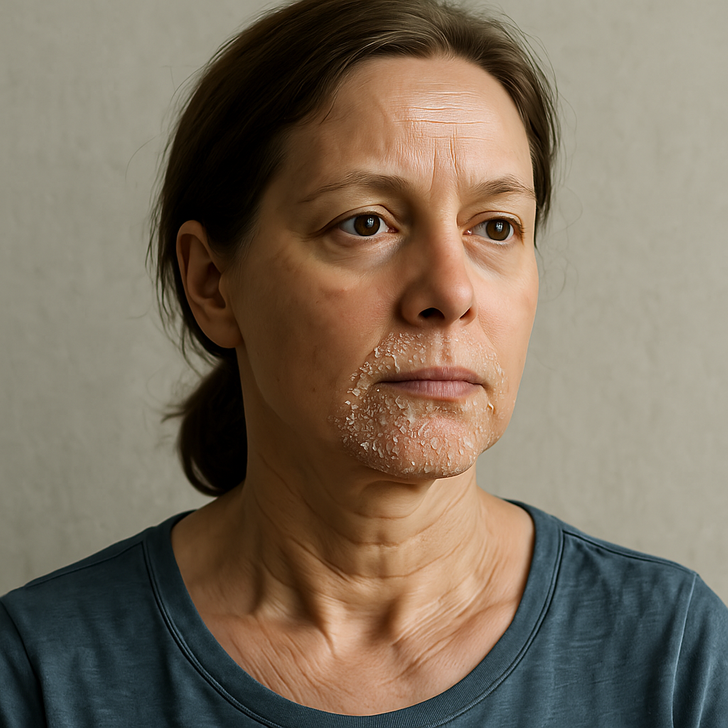
Iron deficiency can contribute to dry, flaky skin as a symptom. It’s thought that low iron levels can make the skin thinner, leading to increased water loss and dryness, potentially causing itching.
How iron deficiency can lead to dry, flaky skin:
Iron is essential for maintaining the skin’s structure and thickness. When iron levels are low, the skin may become thinner, more susceptible to water loss, and prone to dryness.
Iron is crucial for red blood cell production, which carries oxygen and nutrients to tissues. Low iron can reduce blood flow to the skin, depriving it of the necessary resources to stay healthy and hydrated.
Thinner skin and reduced blood flow might contribute to increased water loss through the skin, leading to dryness and flakiness.
Good sources of iron include:
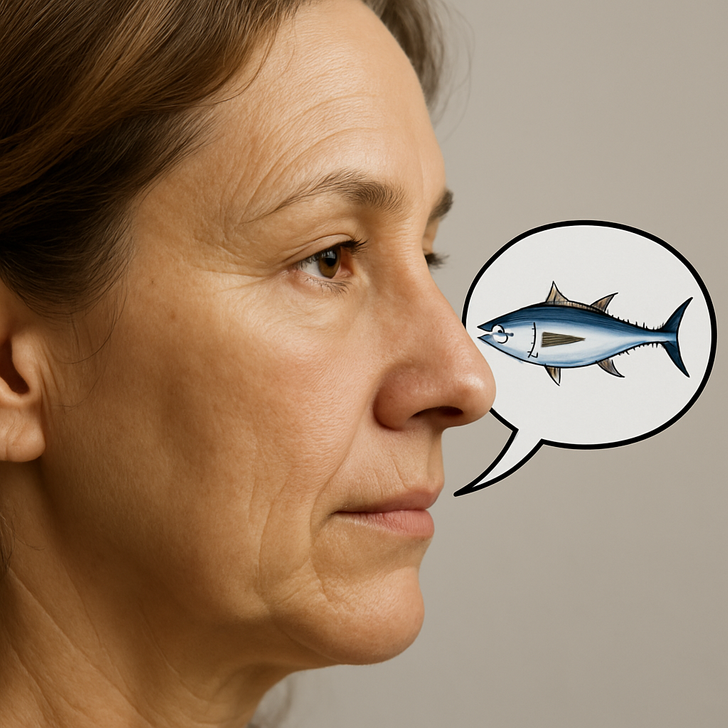
Aging happens for many reasons — like cell damage, changes in our immune system, and how our body handles stress. Science suggests that selenium may help slow down aging by protecting against diseases like heart problems, certain tumors, and even brain disorders. It also seems to lower long-term inflammation, which is often linked to aging.
Selenium works through special proteins that help clear out damaged proteins that build up as we age — a problem seen in conditions like type 2 diabetes and Alzheimer’s. Plus, selenium may help protect the skin from sun damage by boosting the body’s natural antioxidant defenses.
Among foods that are rich in this anti-aging nutrient are brazil nuts, yellowfin tuna, turkey, ham, grains, pork and beef.
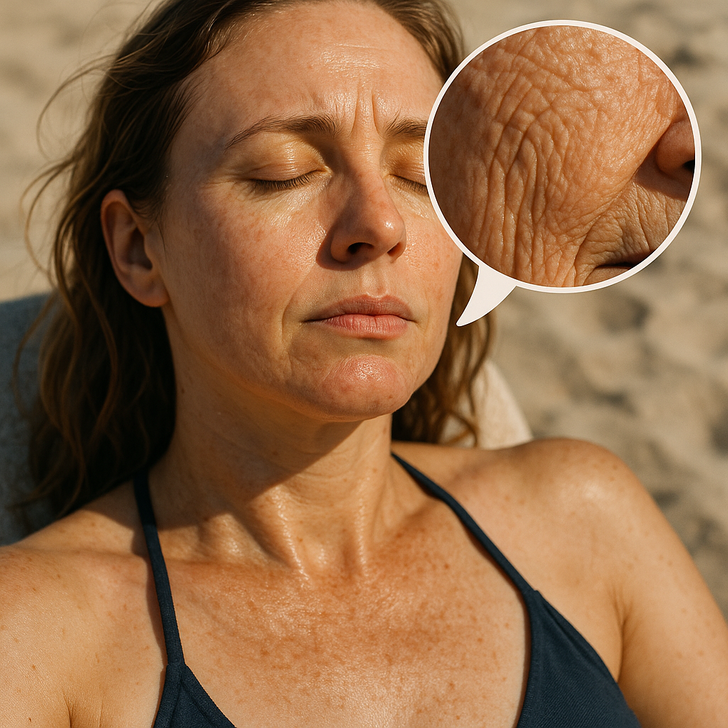
Shelling out for fancy face creams packed with exotic vitamins may do more for your wallet than your wrinkles, dermatologists claim. “Despite advertising claims, almost all available topical formulations contain very low concentrations of antioxidants that are not well absorbed by the skin,” says Karen E. Burke, MD.
Dermatologists claim that there are three antioxidants that have been proven to decrease the effect of the sun on the skin, and vitamin E is among them. Experts believe vitamin E to be the most important antioxidant, protecting cell membranes and enzymes from damage. Found in oils, grains, nuts, oats, and dairy, it may help neutralize free radicals.
Some studies also suggest it can reduce sun damage and lower cancer risk when applied to the skin. “For additional sun protection, individuals may consider taking vitamin E supplements,” said Burke, in a release. “Supplementation with vitamin E in 400 milligrams a day has been noted to reduce photodamage, wrinkles and improve skin texture.”

Zinc deficiency is linked to premature aging due to its role in various bodily functions, including immune health, skin health, and cognitive function. A lack of zinc can lead to weakened immunity, contributing to age-related inflammation, and impair skin elasticity, leading to wrinkles and sagging. Additionally, zinc deficiency can affect cognitive function and potentially contribute to age-related cognitive decline.
Among foods rich in zinc there are oats, cheese, sardines, milk, peanuts, eggs, salmon, rice and even bread.
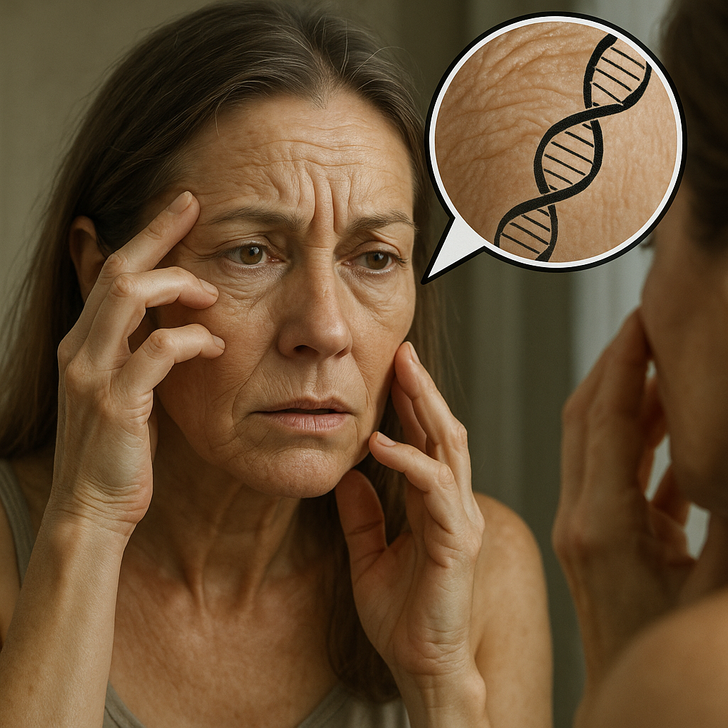
Magnesium deficiency may accelerate premature aging, while adequate magnesium intake may help slow down the aging process. Magnesium plays a crucial role in cellular processes that can be affected by aging, including DNA repair, energy production, and cell signaling.
Magnesium and its role in aging:
Magnesium deficiency can lead to increased oxidative stress and inflammation, both of which are hallmarks of aging. Magnesium supplementation has been shown to reduce oxidative damage, potentially delaying aging.
Magnesium is essential for mitochondrial function, which is crucial for energy production in cells. Studies have shown that magnesium supplementation can enhance mitochondrial function, contributing to a longer lifespan.
Magnesium is involved in DNA repair and maintenance, helping to protect against DNA damage. A deficiency in magnesium can lead to reduced DNA repair, increasing the risk of mutations and contributing to the aging process.
Among foods rich in magnesium, there are:

Folic acid (vitamin B9) can play a role in reducing the signs of premature aging by stimulating collagen production, promoting skin cell growth, and combating oxidative stress. It may also enhance DNA repair and protect against sun damage, further contributing to healthier skin and a youthful appearance.
Here’s a more detailed look at how folic acid might affect aging:
Broccoli, brussels sprouts, leafy green vegetables, such as cabbage, kale, spring greens and spinach, peas, liver are all foods that are rich in folic acid.

Collagen deficiency, often related to deficiencies in certain amino acids like glycine and proline, can have significant impacts on various bodily functions, especially skin and connective tissue health. These amino acids are crucial components of collagen, a primary structural protein in the body.
The key difference between collagen in supplements and food comes down to your body’s ability to use this nutrient. “Foods like bone broth contain a bioavailable form of collagen your body can use right away, making it arguably superior to supplements,” says dietitian Carrie Gabriel, MS, RDN. However, it’s important to note that research is limited in supporting the claim that collagen in food sources is more bioavailable.
Another good source of collagen is chicken. There’s a reason why many collagen supplements are made from chicken. It’s relatively high in the protein. You may have noticed how much connective tissue poultry contains. These tissues make chicken a rich source of dietary collagen.
And here are 9 simple, yet effective tips to help you look younger than your age.











